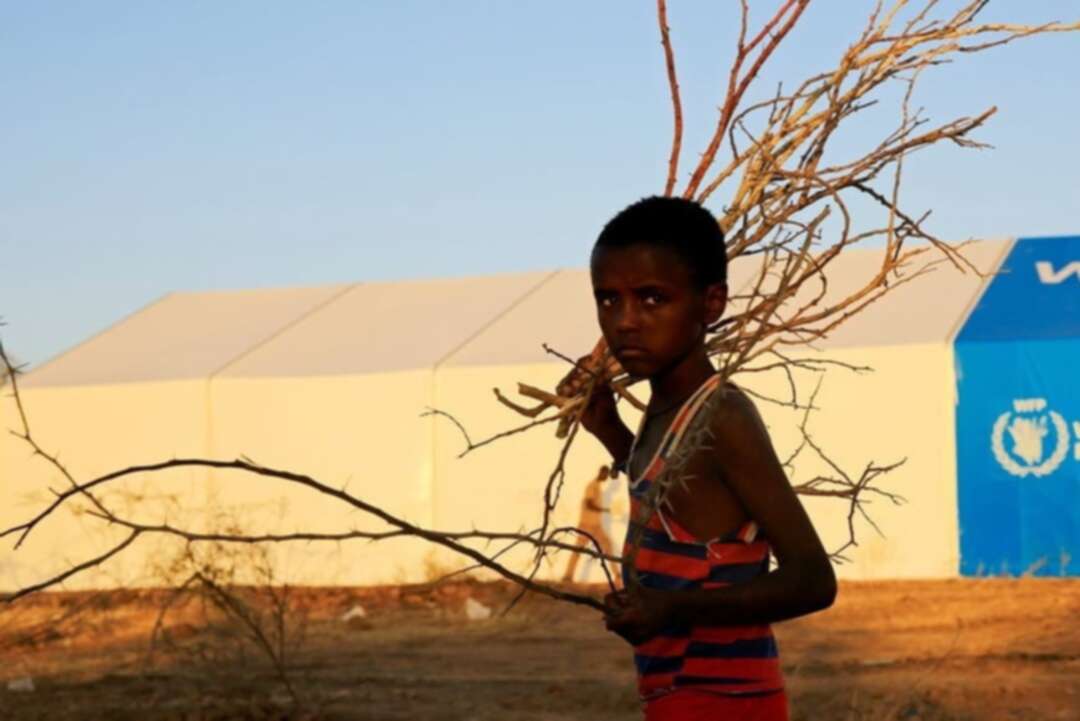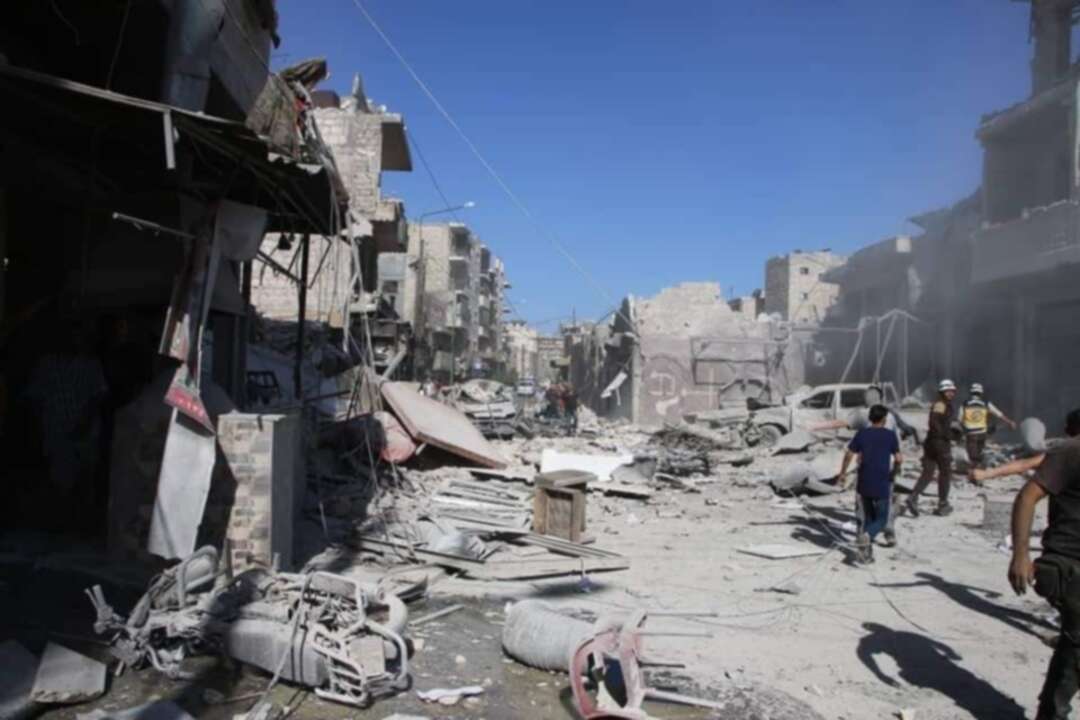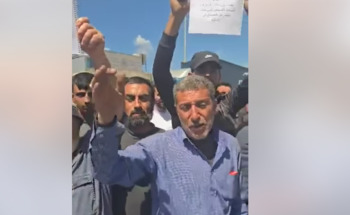-
Alarming’ malnutrition in Ethiopia’s war-hit Tigray: Doctors Without Borders

Doctors Without Borders on Wednesday described “alarming” malnutrition in parts of Ethiopia’s war-hit Tigray region and said the situation was likely to worsen with the coming rainy season.
The medical charity, known by its French initials MSF, said residents were struggling to access food distribution points and lamented that the aid response “hardly ever extends beyond larger towns” to Tigray’s rural areas.
“MSF teams are observing alarming levels of malnutrition among children and pregnant and breastfeeding mothers screened at mobile clinics across several locations throughout the Northwest region of Tigray,” Karline Kleijer, head of MSF’s emergency support department, said in a statement.
Among 309 children screened at remote clinics in recent weeks, 26.6 percent were malnourished and six percent were severely acutely malnourished, Kleijer said, adding the situation “warrants immediate action.”
Ethiopian Prime Minister Abiy Ahmed sent troops into Tigray in November to detain and disarm leaders of the Tigray People’s Liberation Front (TPLF), the regional ruling party that once dominated national politics.
He said the move came in response to TPLF attacks on army camps and that fighting would be over quickly.
But as the six-month-old war drags on, world leaders are increasingly concerned about what US Secretary of State Antony Blinken last month called an impending humanitarian “disaster.”
Tigray’s North Western zone includes the town of Shire which is housing tens of thousands of displaced Tigrayans, many kicked off land in western Tigray in what Blinken has described as “ethnic cleansing.”
Fighting in Tigray disrupted the harvest in a region that was already food insecure.
Wednesday’s MSF statement did not specify why residents couldn’t access food distribution points.
But documents from Tigray’s Abiy-appointed interim government, obtained by AFP last month, said Eritrean soldiers were blocking and looting food aid and forcing aid workers out of parts of the region.
Eritrea denied the allegations.
Kleijer said Wednesday that “the quality and quantity of food available has fallen sharply, with many families eating just one meal a day and often only bread.”
She added: “As rainy season approaches food insecurity issues are expected to worsen, as fields are often inaccessible to the farmers due to the conflict or they don’t have the means to plant crops.
Without more aid malnutrition could become widespread, as could outbreaks of communicable diseases, she said.
source: AFP
Image source: Reuters
Levant
You May Also Like
Popular Posts
Caricature
BENEFIT AGM approves 10%...
- March 27, 2025
BENEFIT, the Kingdom’s innovator and leading company in Fintech and electronic financial transactions service, held its Annual General Meeting (AGM) at the company’s headquarters in the Seef District.
During the meeting, shareholders approved all items listed on the agenda, including the ratification of the minutes of the previous AGM held on 26 March 2024. The session reviewed and approved the Board’s Annual Report on the company’s activities and financial performance for the fiscal year ended 31 December 2024, and the shareholders expressed their satisfaction with the company’s operational and financial results during the reporting period.
The meeting also reviewed the Independent External Auditor’s Report on the company’s consolidated financial statements for the year ended 31 December 2024. Subsequently, the shareholders approved the audited financial statements for the fiscal year. Based on the Board’s recommendation, the shareholders approved the distribution of a cash dividend equivalent to 10% of the paid-up share capital.
Furthermore, the shareholders endorsed the allocation of a total amount of BD 172,500 as remuneration to the members of the Board for the year ended 31 December 2024, subject to prior clearance by related authorities.
The extension of the current composition of the Board was approved, which includes ten members and one CBB observer, for a further six-month term, expiring in September 2025, pending no objection from the CBB.
The meeting reviewed and approved the Corporate Governance Report for 2024, which affirmed the company’s full compliance with the corporate governance directives issued by the CBB and other applicable regulatory frameworks. The AGM absolved the Board Members of liability for any of their actions during the year ending on 31st December 2024, in accordance with the Commercial Companies Law.
In alignment with regulatory requirements, the session approved the reappointment of Ernst & Young (EY) as the company’s External Auditors for the fiscal year 2025, covering both the parent company and its subsidiaries—Sinnad and Bahrain FinTech Bay. The Board was authorised to determine the external auditors’ professional fees, subject to approval from the CBB, and the meeting concluded with a discussion of any additional issues as per Article (207) of the Commercial Companies Law.
Speaking on the company’s performance, Mr. Mohamed Al Bastaki, Chairman BENEFIT , stated: “In terms of the financial results for 2024, I am pleased to say that the year gone by has also been proved to be a success in delivering tangible results. Growth rate for 2024 was 19 per cent. Revenue for the year was BD 17 M (US$ 45.3 Million) and net profit was 2 Million ($ 5.3 Million).
Mr. Al Bastaki also announced that the Board had formally adopted a new three-year strategic roadmap to commence in 2025. The strategy encompasses a phased international expansion, optimisation of internal operations, enhanced revenue diversification, long-term sustainability initiatives, and the advancement of innovation and digital transformation initiatives across all service lines.
“I extend my sincere appreciation to the CBB for its continued support of BENEFIT and its pivotal role in fostering a stable and progressive regulatory environment for the Kingdom’s banking and financial sector—an environment that has significantly reinforced Bahrain’s standing as a leading financial hub in the region,” said Mr. Al Bastaki. “I would also like to thank our partner banks and valued customers for their trust, and our shareholders for their ongoing encouragement. The achievements of 2024 set a strong precedent, and I am confident they will serve as a foundation for yet another successful and impactful year ahead.”
Chief Executive of BENEFIT; Mr. Abdulwahed AlJanahi commented, “The year 2024 represented another pivotal chapter in BENEFIT ’s evolution. We achieved substantial progress in advancing our digital strategy across multiple sectors, while reinforcing our long-term commitment to the development of Bahrain’s financial services and payments landscape. Throughout the year, we remained firmly aligned with our objective of delivering measurable value to our shareholders, strategic partners, and customers. At the same time, we continued to play an active role in enabling Bahrain’s digital economy by introducing innovative solutions and service enhancements that directly address market needs and future opportunities.”
Mr. AlJanahi affirmed that BENEFIT has successfully developed a robust and well-integrated payment network that connects individuals and businesses across Bahrain, accelerating the adoption of emerging technologies in the banking and financial services sector and reinforcing Bahrain’s position as a growing fintech hub, and added, “Our achievements of the past year reflect a long-term vision to establish a resilient electronic payment infrastructure that supports the Kingdom’s digital economy. Key developments in 2024 included the implementation of central authentication for open banking via BENEFIT Pay”
Mr. AlJanahi concluded by thanking the Board for its strategic direction, the company’s staff for their continued dedication, and the Central Bank of Bahrain, member banks, and shareholders for their valuable partnership and confidence in the company’s long-term vision.
opinion
Report
ads
Newsletter
Subscribe to our mailing list to get the new updates!






















